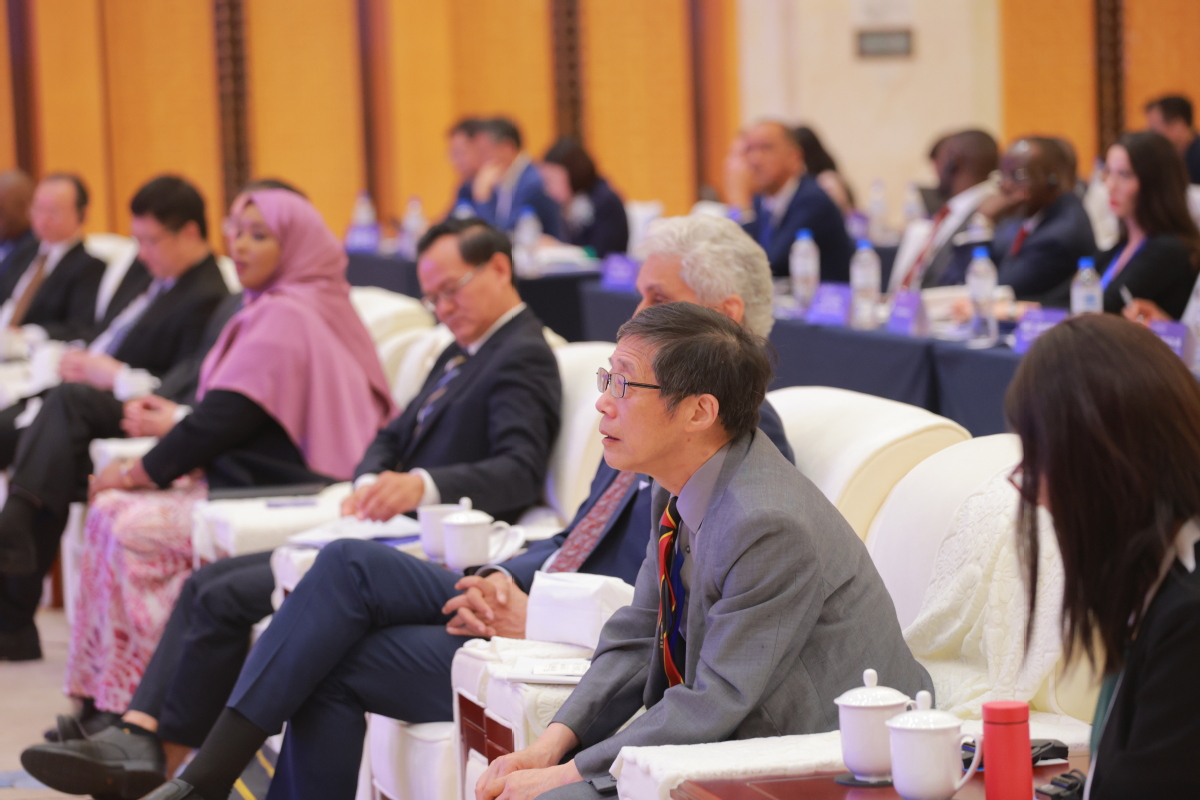The 14th Meeting of the China-Africa Think Tank Forum was successfully held in Kunming, Yunnan, on May 20. Under the theme "Exchanging Governance Experiences and Chinese-Style Modernization," the high-level event was hosted by the Secretariat of the Chinese Follow-up Committee of the Forum on China-Africa Cooperation (FOCAC) and organized by the China-Africa Institute and the Secretariat of the National High-end Think Tank Council of the Chinese Academy of Social Sciences (CASS), with co-organization by Yunnan University of Finance and Economics (YUFE).

The meeting drew more than 60 representatives from over 50 African countries and their diplomatic missions in China, who showed keen interest in the design and characteristics of China's institutional frameworks, highlighting the high regard for the achievements of Chinese-style modernization.
Shared Goals and New Paths
Zhao Yong, Minister at the Department of African Affairs of the Ministry of Foreign Affairs, stated in his opening address that China, as the world's largest developing country, and Africa, the continent with the highest concentration of developing countries, form a community with a shared future and shared interests for win-win cooperation. "Just as China has its 'Two Centenary Goals' and the Chinese Dream, Africa has its 'Agenda 2063' and the African Dream," he said. He emphasized that this year marks the 25th anniversary of FOCAC, which has become a flagship for international cooperation with Africa.
Ye Hailin, President of the China-Africa Institute, noted that while the collective rise of developing nations is an irreversible trend, some Western countries continue to counter global calls for unity with Cold War mentalities and zero-sum games. "In facing this reality, the Global South should break free from the constraints of the Western modernization paradigm," he urged. He stressed that the success of Chinese-style modernization enhances the confidence of African nations to find "African solutions for African problems" and provides Chinese wisdom, experience, and solutions for their development.
Elia G. Kaiyamo, Ambassador of Namibia to China, remarked that while each nation's path to modernization is unique, the common goals of public well-being, poverty eradication, and building resilient societies are universal. "China's immense transformation over the past 40 years offers valuable lessons for African countries," he said. "True modernization must be people-centered, reflected in the happiness, dignity, and participation of the people. China's great achievements are a result of always putting people's needs first."
Yang Shaocheng, Director-General of the Foreign Affairs Office of the Yunnan Provincial People's Government, highlighted the broad scope for cooperation between Yunnan and Africa. He cited Yunnan's long-standing medical aid missions to Uganda, the successful trials of perennial rice to support African food security, and the establishment of Confucius Institutes in Mali.
Awale Ali Kullane, Ambassador of Somalia to China and a long-time observer of China's development, noted that Chinese-style modernization emphasizes coordinated development between material progress and cultural confidence, social equity, and environmental responsibility. "An enduring image remains in our generation's memory: Chinese engineers and workers diligently building roads, bridges, and hospitals. To date, more than 80 major infrastructure projects have been implemented with Chinese support."
Chen Hong, Party Secretary of Yunnan University of Finance and Economics, affirmed the university's commitment to serving national strategies and promoting China-Africa friendship. "In the future, our university will continue to leverage its disciplinary strengths to provide more learning opportunities for African youth and further strengthen cooperation with African universities," he said.
Keynotes and In-depth Discussions
The plenary session, moderated by Tian Feng, Vice President of the China-Africa Institute, featured keynote speeches from distinguished guests, including Mohamed Lehbatt, former Chief of Staff of the Chairperson of the African Union Commission; Chen Xin, Executive Secretary-General of the National High-end Think Tank Council of CASS; and Zhu Cuiping, Dean of the Research Institute for Indian Ocean Economies at YUFE, among other high-level officials and scholars from China and Africa.
The forum included four sub-forums where participants engaged in deep discussions on topics such as mutual learning in governance, implementing the Global Development Initiative, deepening cultural exchanges, and sharing experiences in sustainable development.
A Shared Future
A consensus emerged among the attendees that Chinese-style modernization offers valuable lessons and strengthens the confidence of African nations in achieving their own development goals. As a representative noted, "By learning from history, one can understand the rise and fall of nations." The shared historical experiences and development goals of China and Africa affirm that they are, and will remain, a community with a shared future.
The meeting will be followed by a three-day field study in Yunnan, inviting African envoys and scholars to observe China's modern practices in rural revitalization, industrial innovation, and grassroots governance firsthand.
